Census & Elections
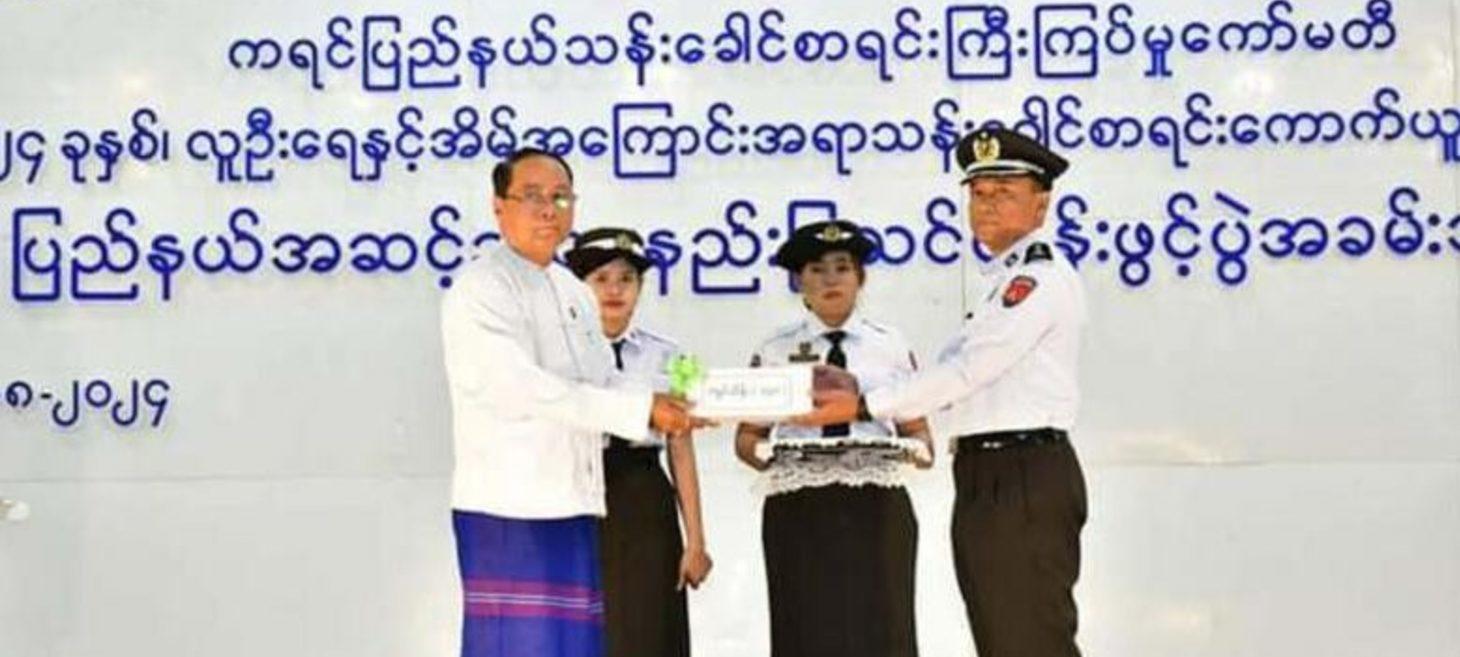
Junta forcing two teachers from every Hpa-An school to help carry out census
Myanmar's military junta is preparing for the 2024 Population and Housing Census by assigning teachers to assist with administration. School staff in Hpa-An report receiving lists of designated teachers who are reluctant to participate due to security concerns. Training sessions have begun at district levels, with township training scheduled for September. The junta has also ordered community administrators to form village-level security teams to protect census workers. This move comes amid ongoing unrest and resistance against the regime, raising concerns about the safety and legitimacy of the census process. Many assigned teachers are reportedly anxious about their involvement, highlighting the challenges faced by the junta in implementing its plans across the country.
Conflict

Myanmar journalists facing ‘terror campaign’ in deadliest year for media since coup
Myanmar's military junta is waging a "campaign of terror" against journalists, marking 2024 as the deadliest year for the media since the 2021 coup. Four journalists have been killed so far this year, including three in August alone. Two freelance journalists, Htet Myat Thu and Win Htut Oo, were shot dead in their home by military forces, while award-winning filmmaker Pe Maung Sein died shortly after release from prison due to untreated injuries sustained during detention. With 64 journalists currently imprisoned, Myanmar ranks as the world's second-worst jailer of journalists, behind China. The junta has intensified its crackdown, imposing harsh sentences under terrorism-related charges. Despite these risks, many journalists continue reporting on human rights abuses and the country's dire situation, prompting calls for increased international pressure on the regime to end its attacks on the press.
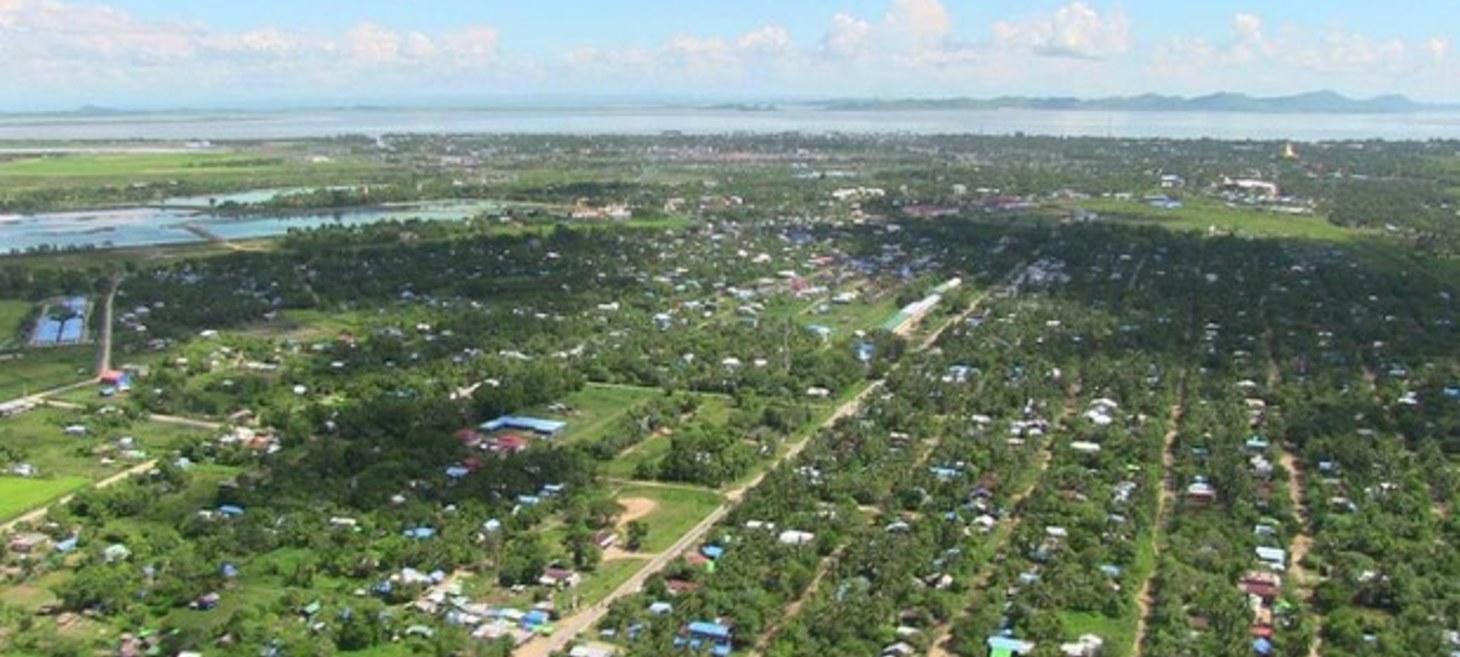
Myanmar junta arrests dozens for sending supplies to rebel zone
Myanmar's military junta has arrested approximately 70 residents in Sittwe, the capital of Rakhine state, on suspicion of supporting the Arakan Army (AA) rebels. The arrests occurred after residents attempted to deliver goods and food to AA-controlled areas, violating the junta's blockade. Detainees, including women, are being held at Sittwe Police Station No. 1. This crackdown follows significant territorial losses by the junta to the AA, which now controls 10 of Rakhine's 17 townships. The AA recently announced plans to capture the remaining junta-held areas, including Sittwe. The arrests reflect the junta's efforts to isolate the AA through blockades and intimidation tactics, part of its broader "four-cuts" strategy aimed at cutting off rebels from resources and support.
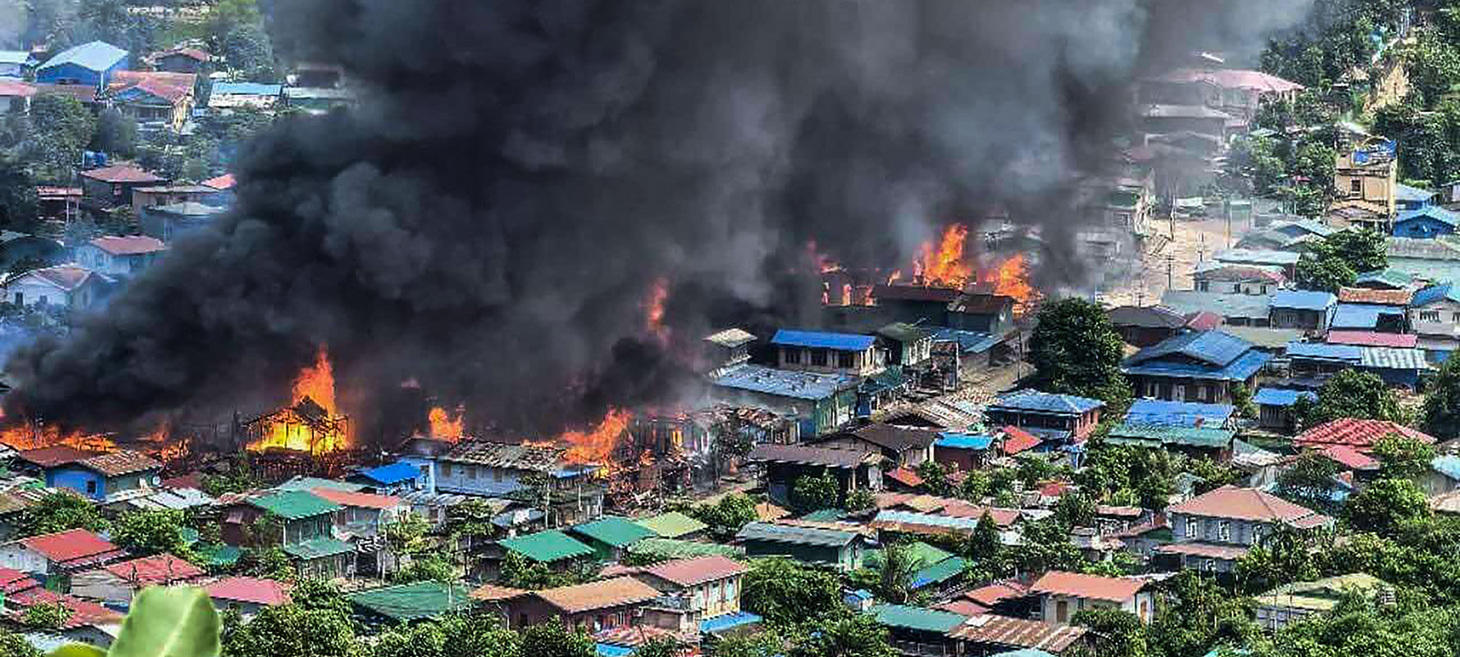
KIA Seize Police Station Near Myanmar’s Ruby Hub Hpakant
The Kachin Independence Army (KIA) has seized a police station near Hpakant, Myanmar's ruby hub, as part of its ongoing conflict with the military junta. This move is part of a broader strategy by ethnic armed groups to gain control over key areas and resources in Myanmar. The KIA's actions reflect the increasing pressure on the junta, which has been losing territory to various ethnic armies since the 2021 coup. The capture of the police station underscores the growing strength and assertiveness of the KIA in the region, further complicating the junta's efforts to maintain control.

Two Junta Warships Hit Again; One Ship Catches Fire
Two junta warships advancing from Tigyaing Township to Katha Township in Myanmar's Sagaing Region were hit and are now stationed at the Thahpankaing jetty in Katha. The attack, carried out by local revolutionary forces, resulted in one ship catching fire. This incident is part of ongoing clashes between the military junta and resistance groups, including the Kachin Independence Army (KIA) and the People's Defense Force (PDF), who have intensified operations in the region. The junta has been using the Ayeyarwady River to transport supplies, but resistance control over key routes has complicated these efforts. The military's reliance on river transport has been challenged by the revolutionary forces' control of strategic areas, making it difficult for the junta to maintain supply lines. The conflict has also led to civilian casualties, with airstrikes killing six people in Maungkon village. The situation remains tense, with revolutionary forces aiming to capture key towns and disrupt the junta's logistics.
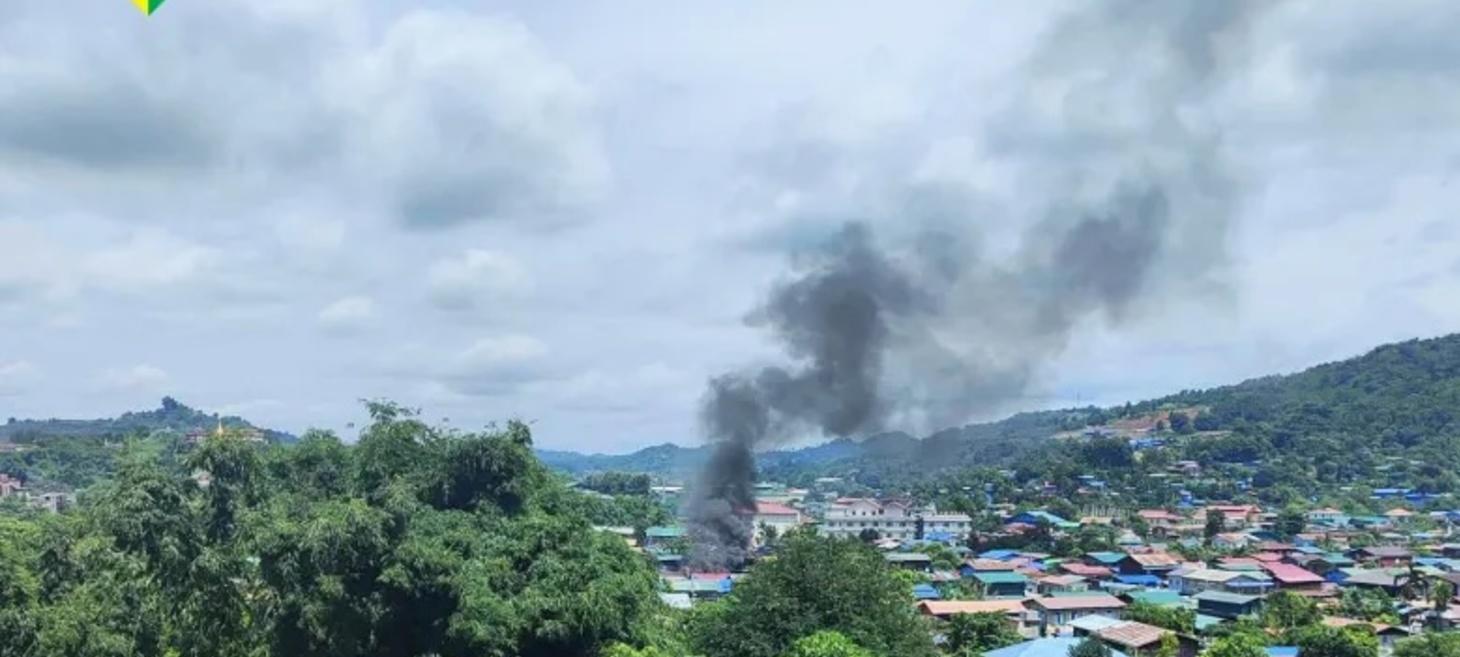
Junta attacks KIA and KPDF forces in Seng Taung Village, in Hpakant Township
The Myanmar military junta launched attacks on Kachin Independence Army (KIA) and Kachin People's Defense Force (KPDF) positions in Seng Taung village, Hpakant Township. The clashes occurred near the Hpakant jade mining area, a significant economic hub in Kachin State. Local residents reported hearing gunfire and explosions during the fighting, which lasted for several hours. The KIA and KPDF forces reportedly repelled the initial assault, but the situation remains tense. The attack marks continued conflict between the junta and ethnic armed groups in northern Myanmar, highlighting ongoing instability in the region.

Airstrikes Concern Lashio Town Residents
Residents of Lashio Town in northern Shan State are preparing to evacuate following a recent airstrike by Myanmar's military junta that killed three civilians and injured 20 others. The airstrike targeted four locations, including the General Administration Office, and also resulted in the death of a Myanmar National Democratic Alliance Army (MNDAA) officer. Despite the MNDAA's control over Lashio since early August, residents remain concerned about potential further attacks as rumors circulate about the junta's plans to retake the town. The MNDAA and the United Wa State Army are conducting joint patrols, but essential services like schools remain closed. The ongoing threat of airstrikes has left many residents uncertain about their safety and future in the town.
Conscription
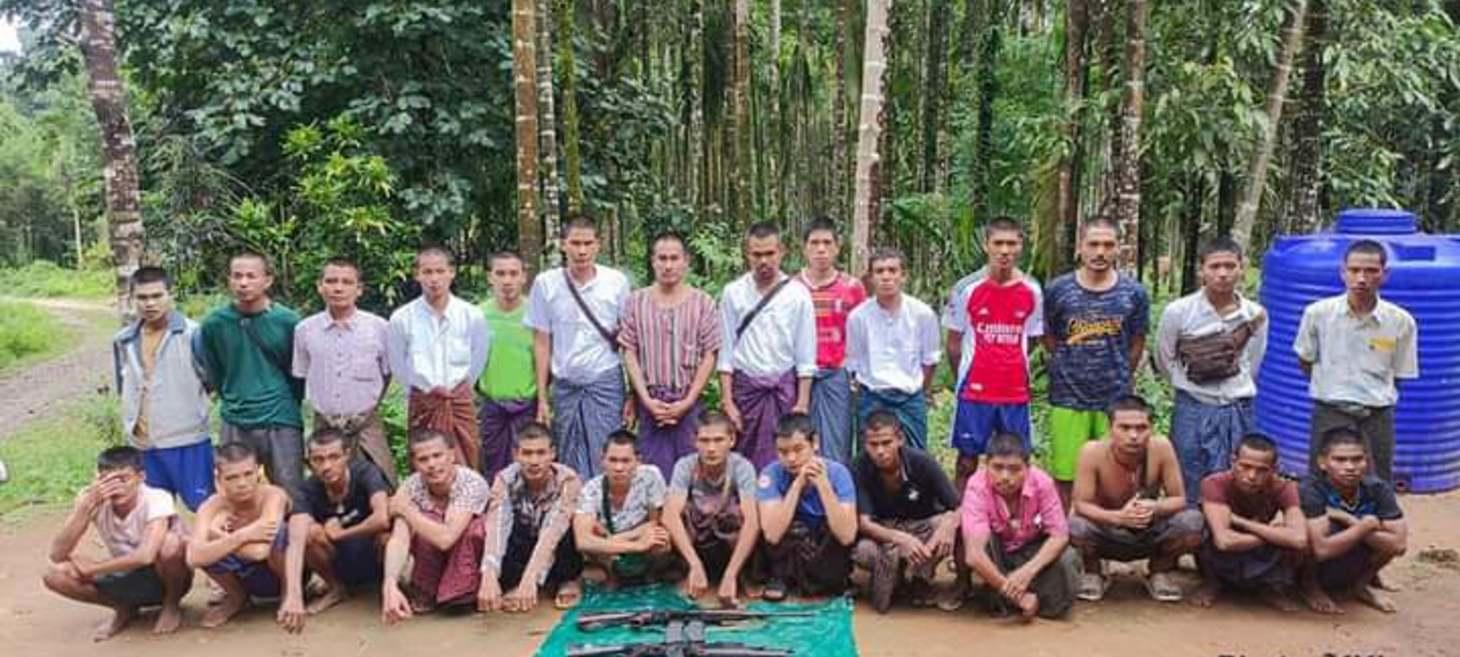
‘Captured’ conscripts vow to join fight against Myanmar junta
Twenty-seven young men who escaped forced recruitment into Myanmar's military junta are now planning to fight against the regime, according to the Karen National Union (KNU). The conscripts had initially fled to Thailand to avoid being drafted under the People's Military Service Law. While being transported to a training center, they overpowered their guards and escaped. Of the 27 who reached KNU territory, 22 intend to join the resistance, citing personal experiences as motivation. The KNU is sheltering the escapees and assisting those who wish to return home. This incident highlights growing opposition to forced conscription and the junta's struggles to maintain control amid ongoing conflict.
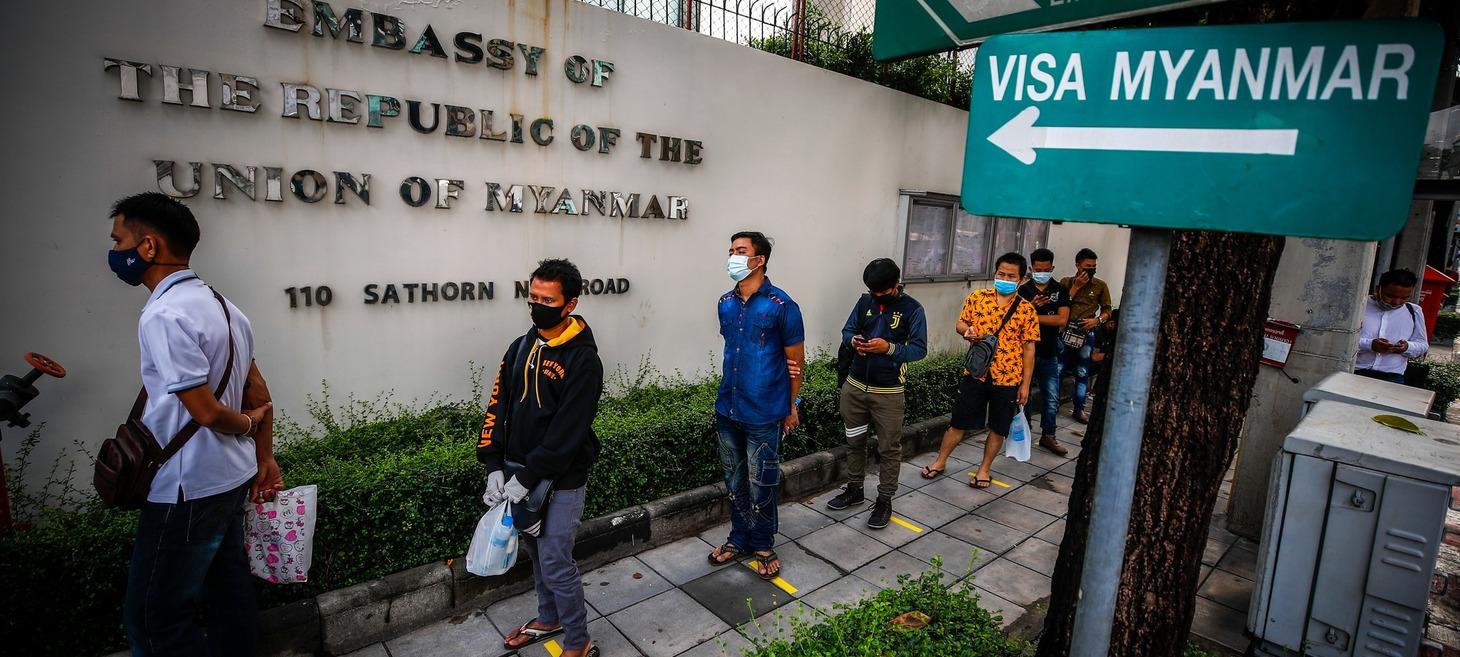
Myanmar nationals in Thailand face new passport hurdle
The Myanmar embassy in Bangkok has announced it will stop renewing passports for Myanmar nationals studying at non-accredited language schools and other informal educational institutions in Thailand. This move affects many who use "Non-Ed" visas to stay longer than tourist visas allow. The embassy claims some students were obtaining these visas while studying virtually, which they say is not a valid reason to remain in Thailand. Many Myanmar citizens living abroad expressed concern about this latest restriction on freedom of movement. Some speculated the junta aims to force conscription-age individuals back home. This comes as part of broader efforts by the regime to stem the flow of young people leaving Myanmar since the coup and military draft began.
Economy
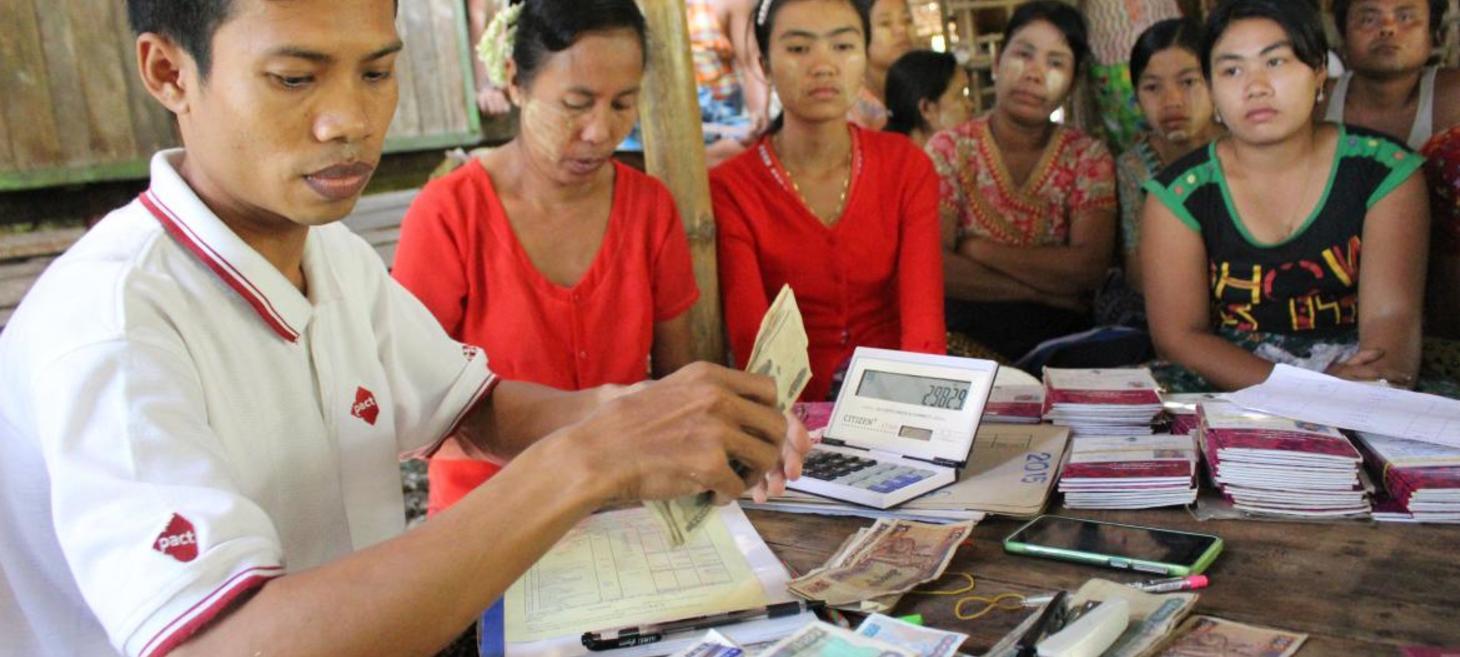
Debt trap: Moneylenders prey on the poor
In Myanmar, illegal moneylenders are exploiting the poor with exorbitant interest rates amid the economic crisis following the 2021 military coup. Many working-class families are turning to these lenders for emergencies, facing rates of 20% per month or even 10% daily. To collect debts, lenders often hire thugs to intimidate borrowers, leading to violent confrontations. Legal alternatives like microfinance companies are limited, requiring collateral and guarantors that many poor households cannot provide. This has created a cycle of debt traps, with some families seeing their initial loans balloon to multiples of the original amount. The situation highlights the dire financial straits many are facing in Myanmar, with few safe options for accessing credit during times of need.
Ethnic Issues

Shan Armies Situation Amidst Spring Revolution
Despite the growing momentum of revolutionary armed organizations against Myanmar's military junta, the Shan armies have remained neutral, believing the conflict primarily involves the Barman people and the Tatmadaw. They aim to maintain autonomy, focusing on military development, economic gains, and alliances while avoiding becoming puppets for any group. This neutrality has led to internal territorial disputes and a lack of support among the Shan. Meanwhile, other armed groups, like the Three Brotherhood Alliance and various ethnic armed organizations, have expanded their territories and established independent administrations. These developments and the rejection of military-led elections risk fragmenting Shan State, highlighting the need for the Shan to address these challenges seriously.
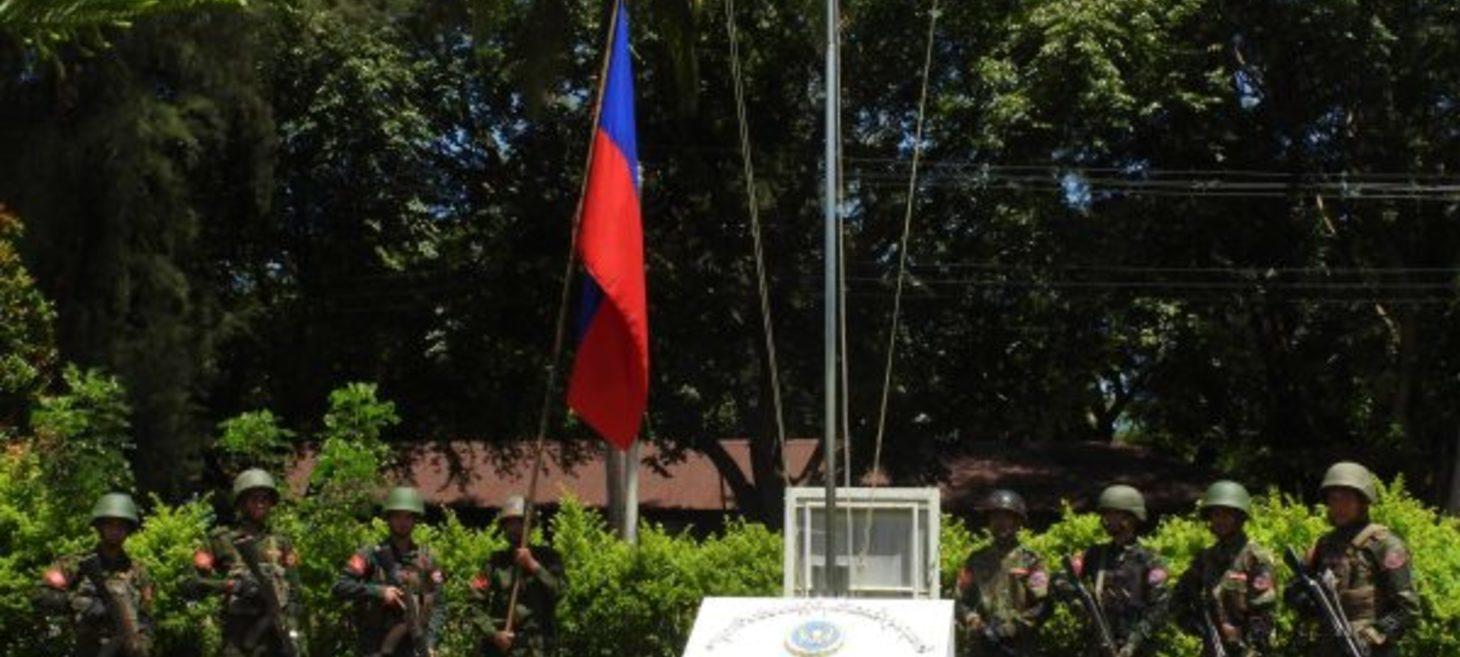
Why Rakhine State Could Become Myanmar’s First Truly Autonomous Region
Rakhine State, also known as Arakan, is poised to become Myanmar's first truly autonomous region due to the strong leadership and unity of the Arakan Army (AA) and its strategic geopolitical location. The AA, led by Twan Mrat Naing and Brig. Gen. Nyo Twan Awng, has grown into a formidable force with a clear vision of reviving the "Arakan Nation." Unlike other ethnic armed organizations, the AA operates with relative freedom from foreign influence, particularly from China, allowing it to craft its own strategy for Rakhine. The region's geopolitical significance, with interests from both China and India, provides the AA with leverage, as both countries have vested interests in maintaining good relations with whoever controls Rakhine. This unique position, combined with the AA's ability to resist Myanmar military control and foreign interference, gives Rakhine State a real chance at achieving autonomy, potentially reshaping the geopolitical dynamics of Southeast Asia.
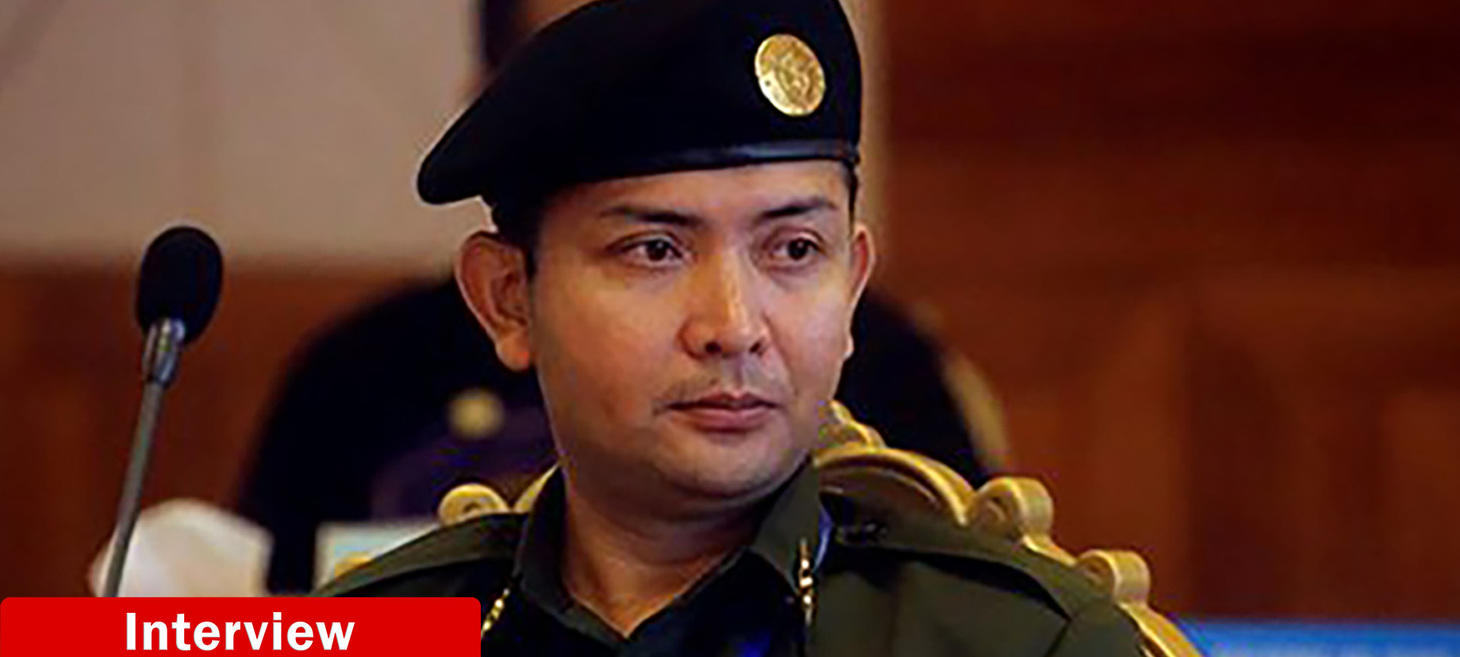
AA Chief: Arakan Army’s Vision for Myanmar is Federal Union of Ethnic and Bamar Peoples
In an interview with The Irrawaddy, Arakan Army (AA) Chief Tun Myat Naing discussed the group's efforts to reassert administrative control over Rakhine State while coordinating with revolutionary groups nationwide to replace Myanmar's junta with a civilian confederation. He highlighted the establishment of the Arakan Authority to manage governance, justice, healthcare, and education, despite challenges from ongoing clashes and the junta's indiscriminate attacks. Emphasizing the importance of unity among all ethnic groups, including the majority Bamar people, he advocated for building alliances to confront the common enemy of the military regime. Tun Myat Naing dismissed fears of the country's fragmentation post-junta, arguing that the real harm comes from the military's oppressive rule. Despite the junta's advanced weaponry and tactics, he expressed confidence in the revolution's success, citing weakened military morale and increased cooperation among resistance forces.
Foreign Affairs
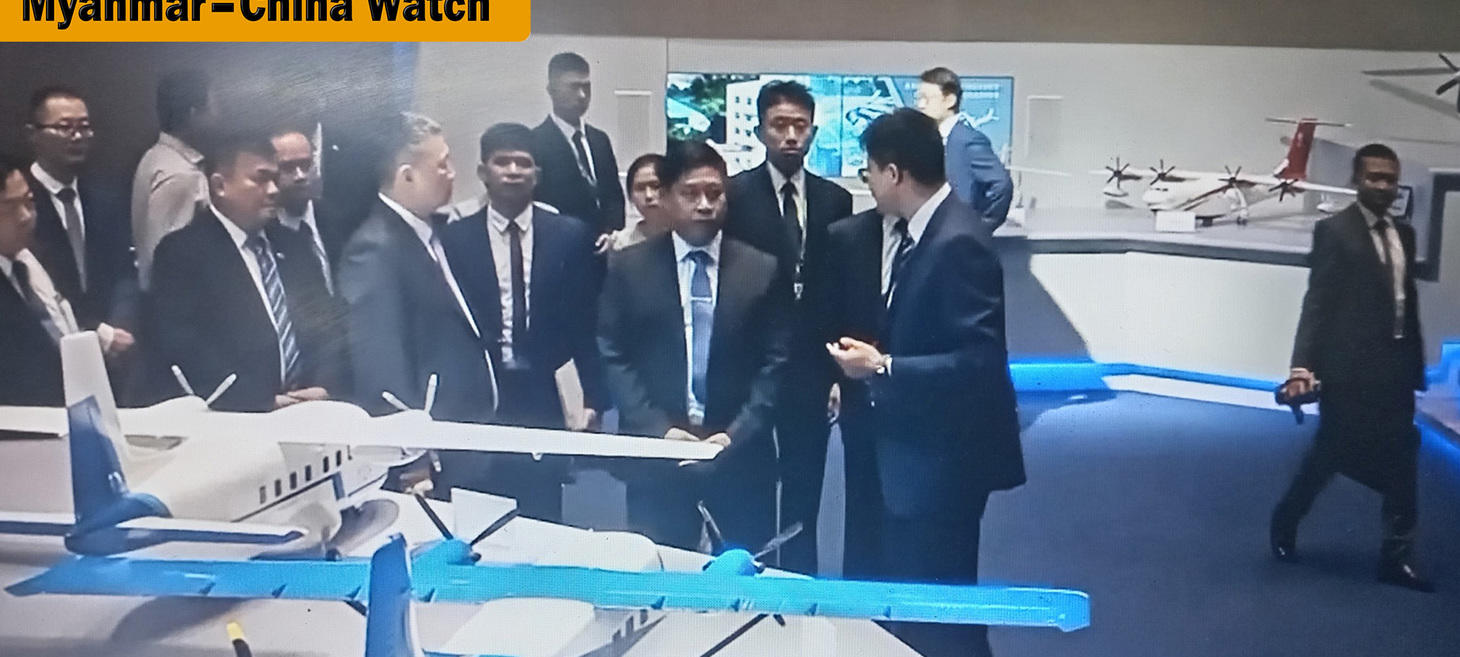
Myanmar Junta Taps China for Drone Tech After Losing Territory to Ethnic Armies
Myanmar's military junta is turning to China for drone technology after losing territory to ethnic armed groups. The junta has suffered significant losses, particularly in northern Shan State, where the Three Brotherhood Alliance (3BHA) has gained control of large areas. Desperate for assistance, the junta has reached out to China, offering to restart a major dam project and declaring Chinese New Year a public holiday. China has shown a willingness to help, but its primary focus remains protecting its economic interests in the region. The situation allows China to increase its influence in Myanmar, potentially leading to an authoritarian outcome despite the military's struggles.
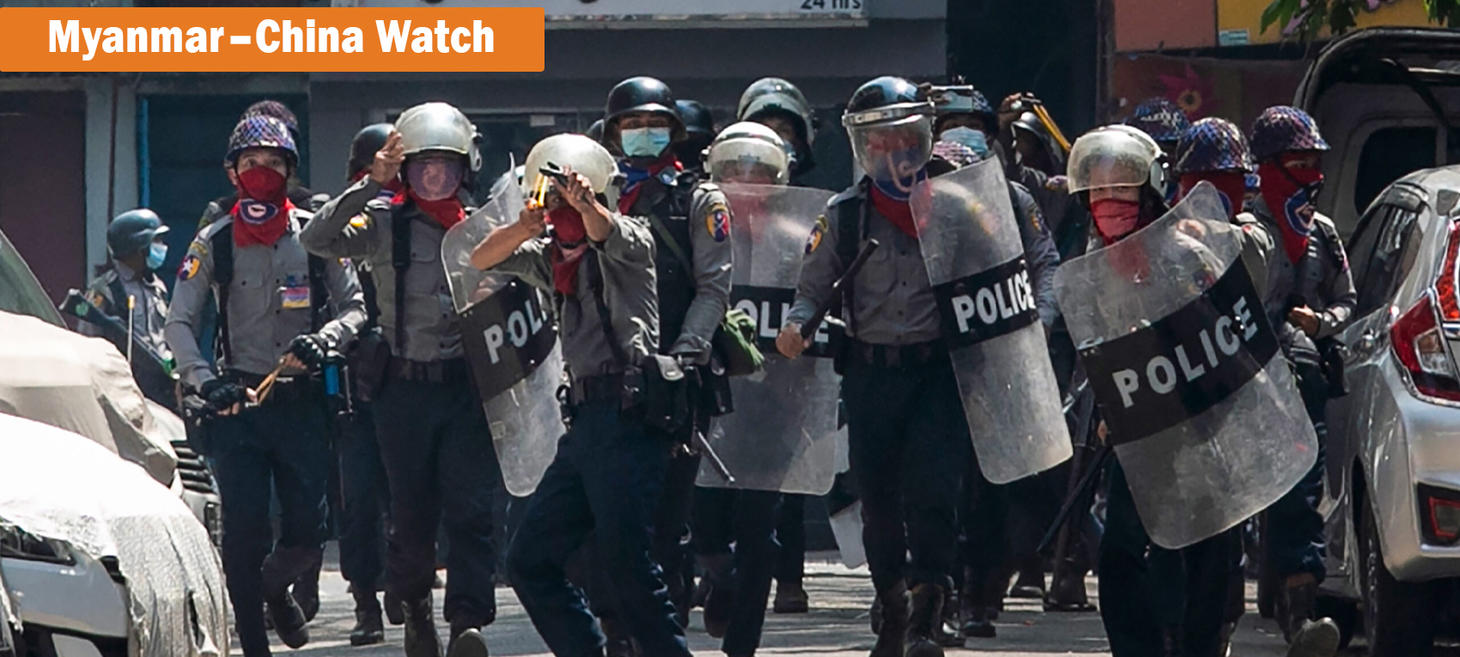
Chinese, Myanmar Junta’s Police Forces Ramp Up Cooperation
Chinese and Myanmar junta police forces are increasing their cooperation, focusing on security and law enforcement. This collaboration includes joint efforts to combat cross-border crime and enhance regional stability. The partnership is part of a broader strategy by China to strengthen its influence in Myanmar, particularly in light of the junta's ongoing struggles to maintain control over the country. This increased cooperation comes amid concerns about China's growing role in Myanmar's internal affairs and its potential impact on regional dynamics.
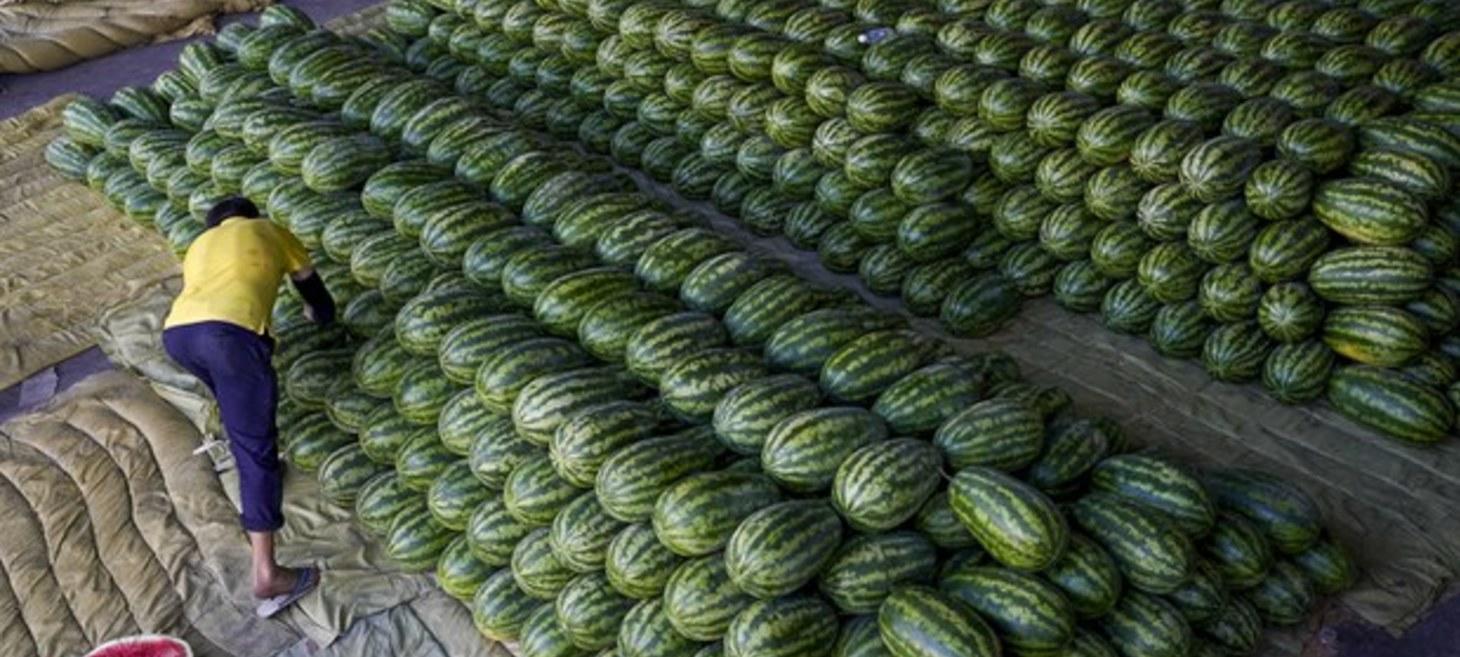
China in delicate dance with Myanmar’s rebel groups
Nearly 2 million people in Myanmar's northern Shan State are facing severe shortages of medicine and basic commodities after China closed its border and the Myanmar junta restricted trade routes. This situation arose as the Three Brotherhood Alliance, a group of rebel factions, gained control over 21 townships and several border gates, pushing the military out of key areas. The border closure has led to skyrocketing prices and limited access to essential goods, exacerbating the humanitarian crisis. China, a major investor in Myanmar, closed the border to pressure an end to the conflict, while the junta struggles to maintain control over Chinese projects now partially managed by ethnic rebels and the anti-junta People's Defense Force. The situation underscores the complex dynamics between the junta, ethnic groups, and China's interests in the region.
General News
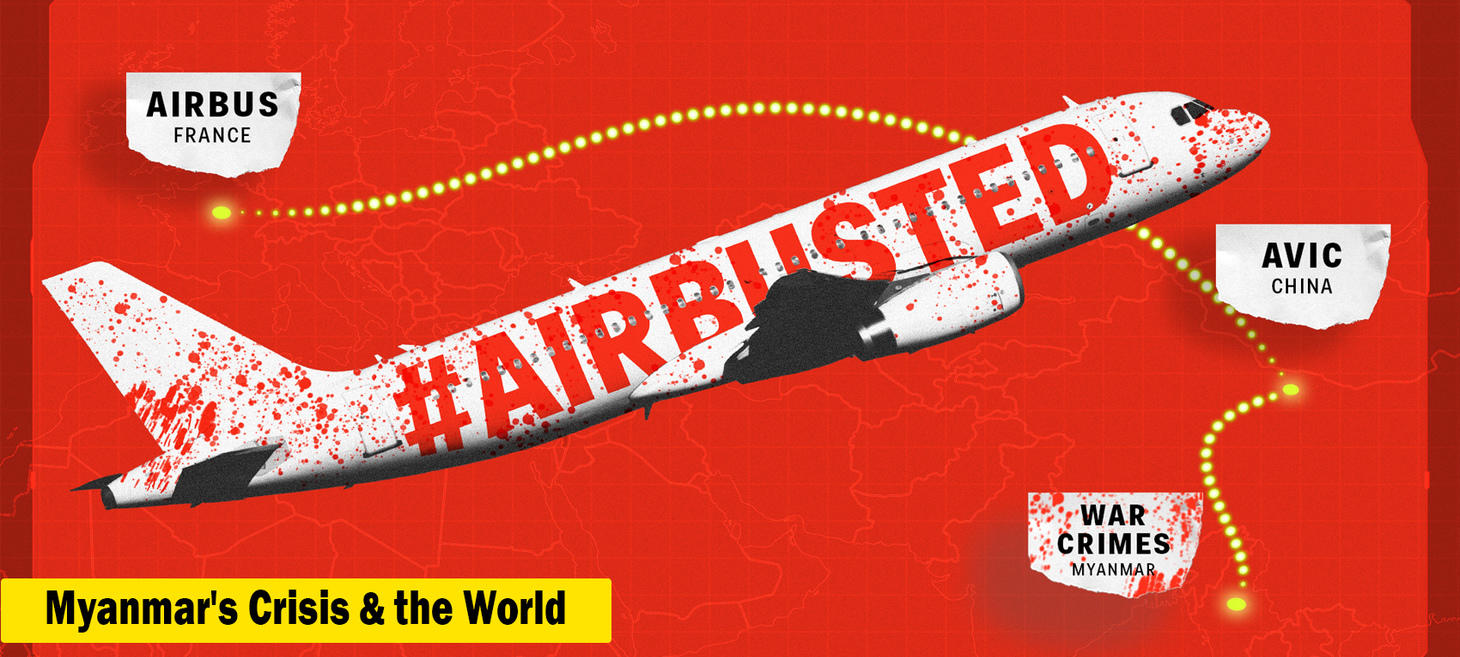
Airbus Partnering With Chinese Titan Selling Killer Jets to Myanmar’s Junta: Report
An investigation by Justice For Myanmar and Info Birmanie has revealed that the Aviation Industry Corporation of China (AVIC) is supplying aircraft and weapons to Myanmar's military junta, which are being used to commit war crimes and crimes against humanity. The report highlights AVIC's provision of fighter jets, combat aircraft, and military transport aircraft, as well as maintenance services for the Myanmar Air Force. Despite AVIC's involvement in arming the junta, Airbus, a major investor in AVIC's holding company, has increased its collaboration with AVIC-controlled companies. This situation presents a contradiction between the public condemnations of Myanmar's military crimes by the governments of Spain, Germany, and France, and their indirect support through Airbus's continued partnership with AVIC. Justice For Myanmar and Info Birmanie are urging Airbus to leverage its influence to halt AVIC's arms supply to the junta, and for the involved governments to align their actions with their public commitments to stop arms flows to Myanmar.
Healthcare
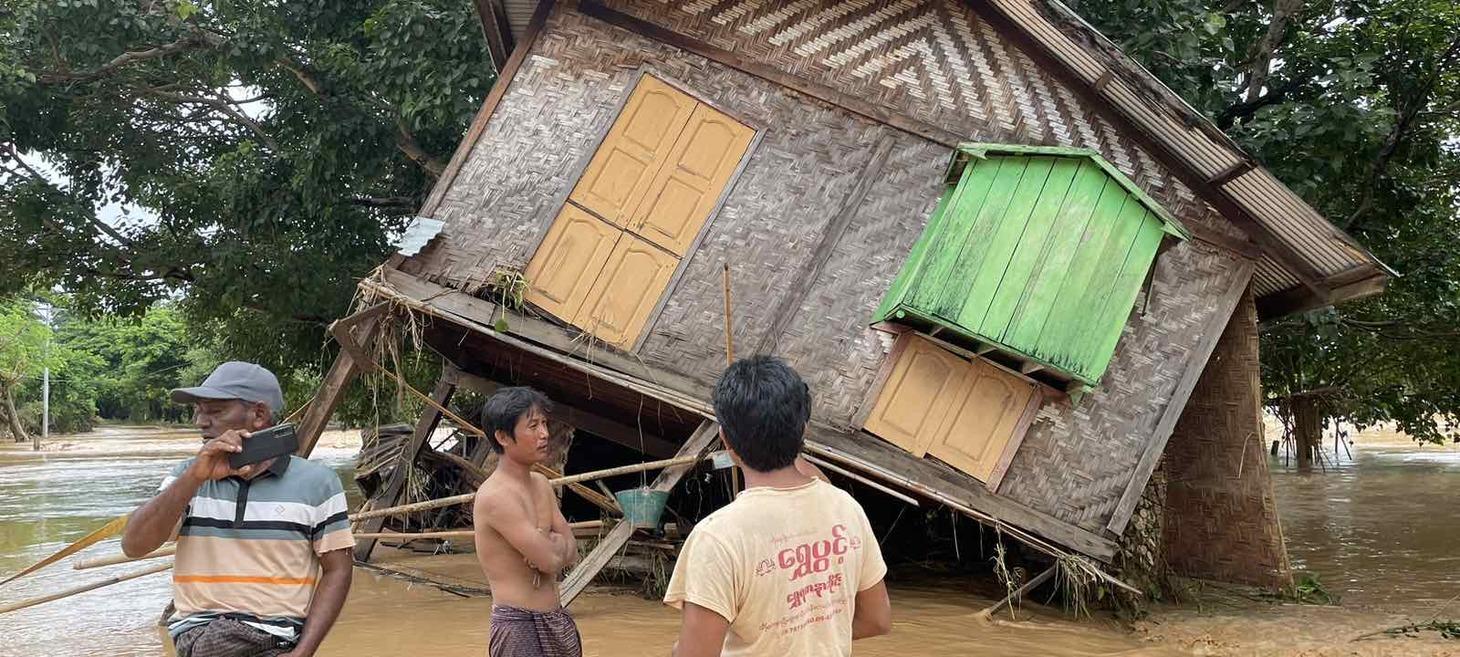
More than 100 fall ill with food poisoning amid flooding near Myanmar capital
Amid severe flooding near Myanmar's capital, more than 100 people fell ill with food poisoning after consuming donated meals, including biryani and curries, in Tatkon Township. The outbreak affected both local residents and rescue volunteers, with symptoms such as nausea and vomiting appearing shortly after the meals were consumed. Patients were treated at various medical facilities, including a 100-bed hospital, which became overwhelmed as waves of patients arrived. The military council attributed the illness to the consumption of spoiled food and issued an advisory warning about the risks of unhygienic food preparation and storage. The flooding, caused by Typhoon Yagi, has resulted in significant displacement and fatalities, with concerns about potential contamination of drinking water sources leading to further health risks.
Humanitarian
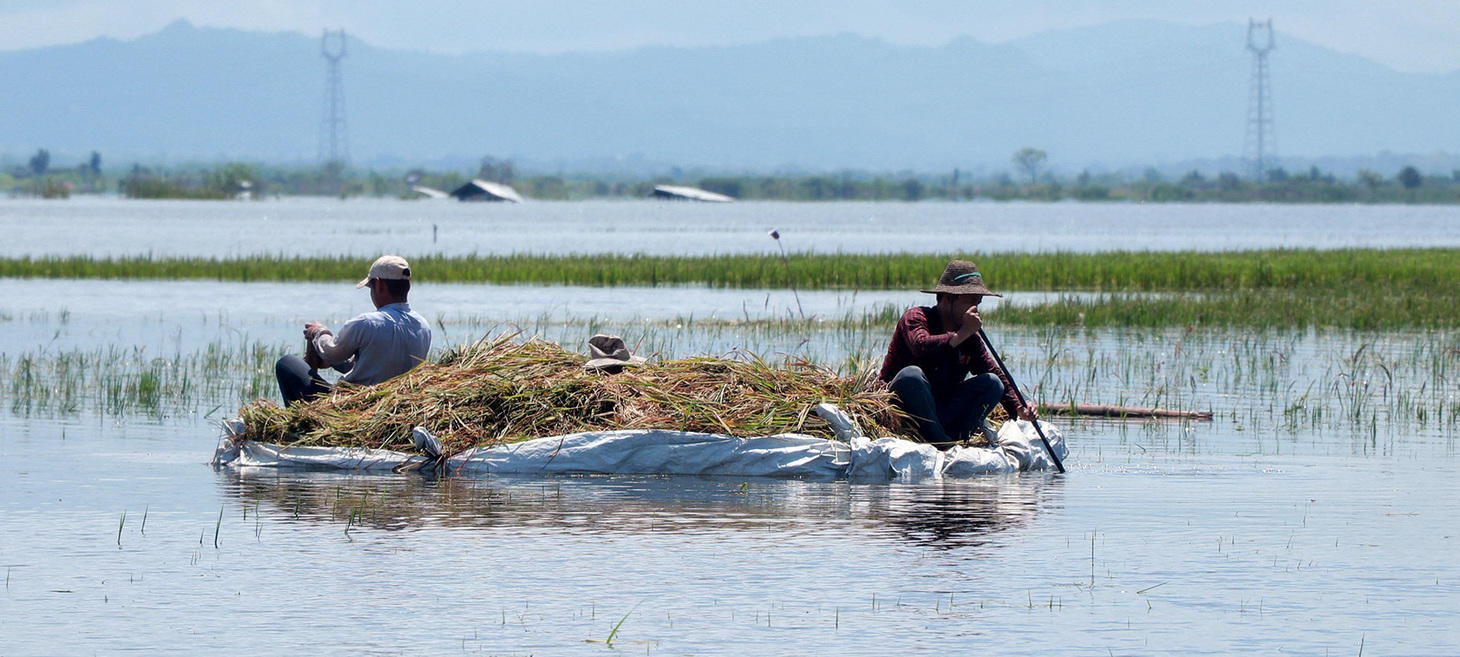
Thousands Stranded by Loikaw Flood After Myanmar Junta Bars Rescuers
Thousands of people have been left stranded by severe flooding in Loikaw, Myanmar, as the military junta has reportedly barred rescue operations. The restriction on rescuers has exacerbated the crisis, leaving affected residents without necessary aid and support. The situation highlights the ongoing challenges faced by civilians in Myanmar amidst political and environmental turmoil.
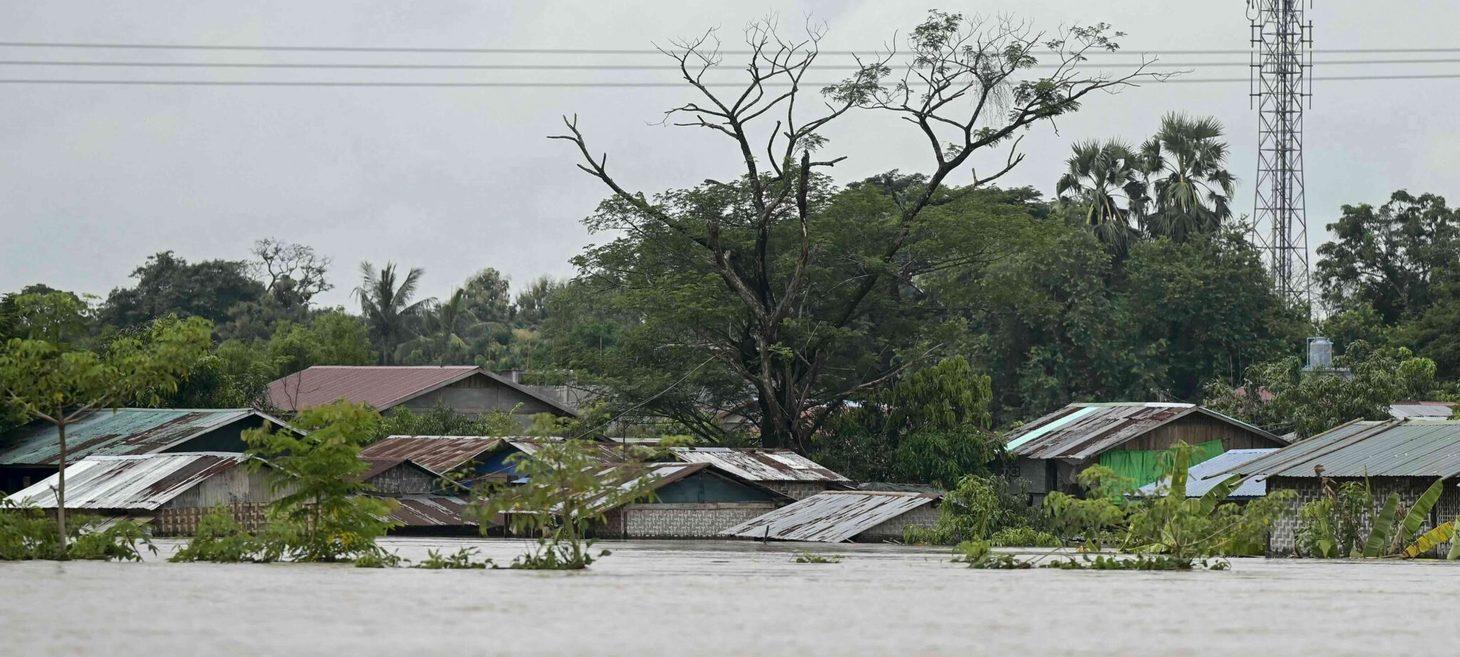
Myanmar junta makes rare request for foreign aid to cope with deadly floods
Myanmar's military junta has made a rare request for foreign aid to deal with devastating floods that have displaced hundreds of thousands of people. Over 235,000 have been forced from their homes, adding to the country's existing humanitarian crisis since the 2021 coup. Junta chief Min Aung Hlaing called for international assistance, stating it was necessary to manage rescue efforts quickly. This comes after the regime previously blocked foreign aid access following Cyclone Mocha last year. The floods, triggered by Typhoon Yagi, have killed at least 33 people in Myanmar, with reports suggesting many more may be buried in landslides. The UN has expressed difficulty verifying numbers due to communication blockages. Local media reported six deaths in a landslide in eastern Shan State. The situation highlights the junta's struggles to cope with natural disasters amid ongoing conflict and economic hardship.
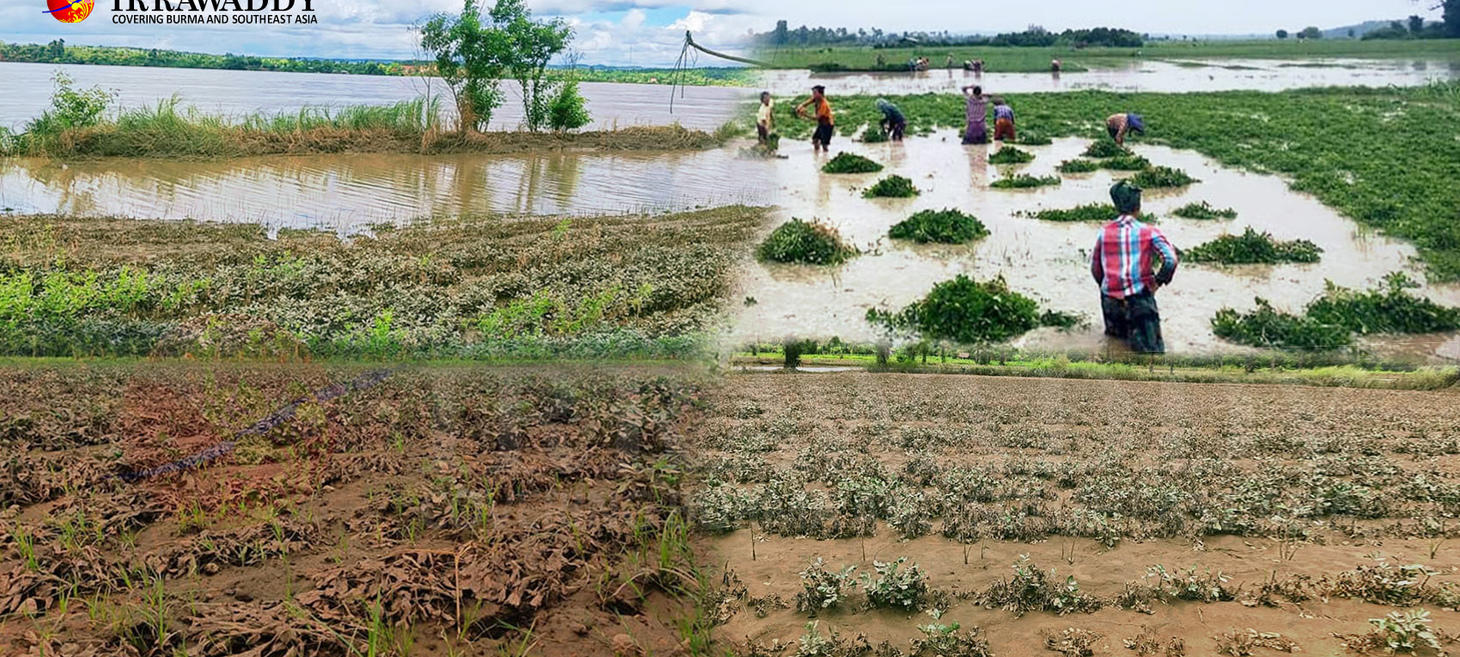
Extreme Weather Blights Farmers’ Lives in Impoverished Myanmar
Extreme weather conditions are severely impacting farmers' lives in impoverished Myanmar. Intense flooding, described as the worst in recent years, has submerged communities, displaced thousands, and significantly damaged infrastructure across several regions. This severe weather follows a pattern linked to global climate change, with increased frequency and intensity of events creating cycles of vulnerability for many communities. Farmers face significant challenges due to inundated fields, lost crops, and disrupted livelihoods, particularly those who cannot afford fertilizers and seedlings. The situation highlights the urgent need for emergency relief and long-term resilience strategies to address climate change impacts on vulnerable communities in Myanmar.
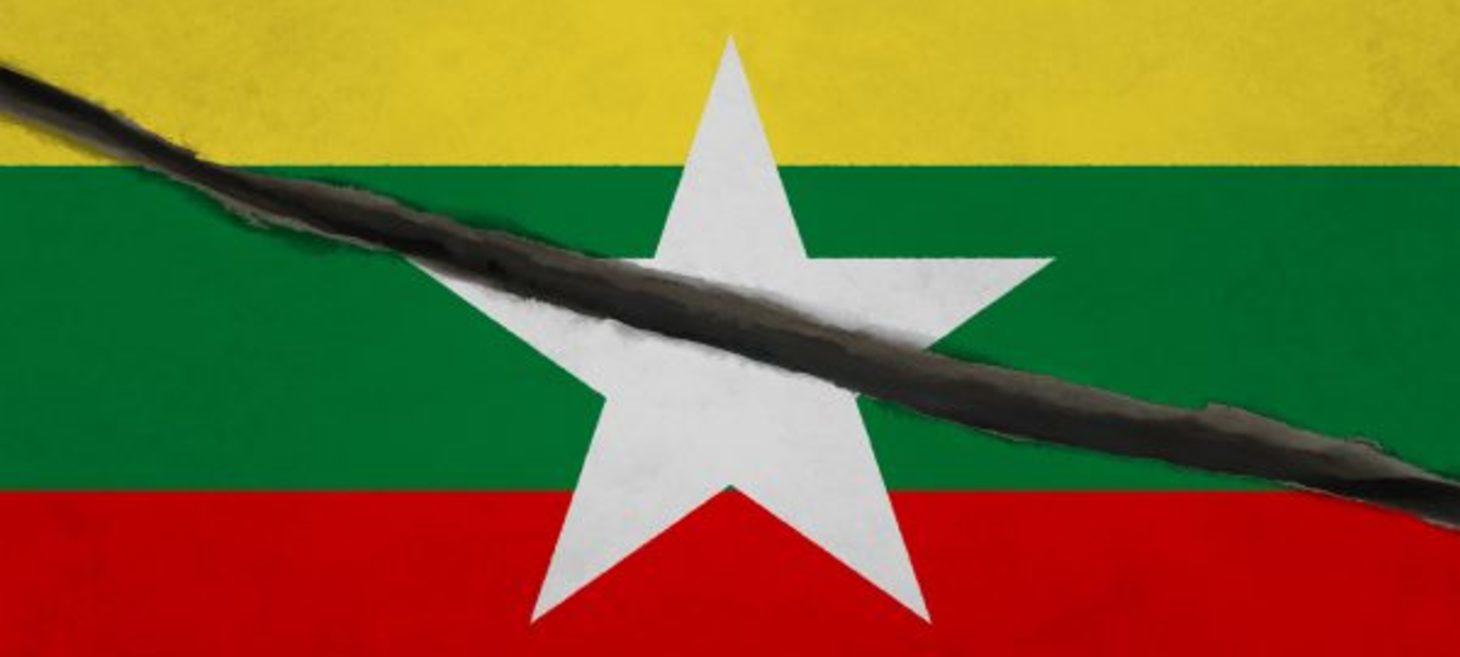
Engagements With the Myanmar Military Undermine Localized Approaches to Humanitarian Assistance
Engagements with Myanmar's military junta are undermining localized approaches to humanitarian assistance, as highlighted by a recent article in The Diplomat. The piece argues that international organizations should focus on strengthening local networks and providing cross-border aid rather than seeking authorization from the junta, which has a history of neglecting civilians and violating human rights. The article criticizes the International Committee of the Red Cross (ICRC) for its interactions with the junta, suggesting that such engagements risk legitimizing a brutal regime and compromising the integrity of aid efforts. Local service providers have successfully delivered aid without junta approval for over 30 years, demonstrating the effectiveness of localized assistance. The article emphasizes that a top-down, neutral approach to aid access may exacerbate the conflict, and calls for international actors to support local humanitarian initiatives instead.
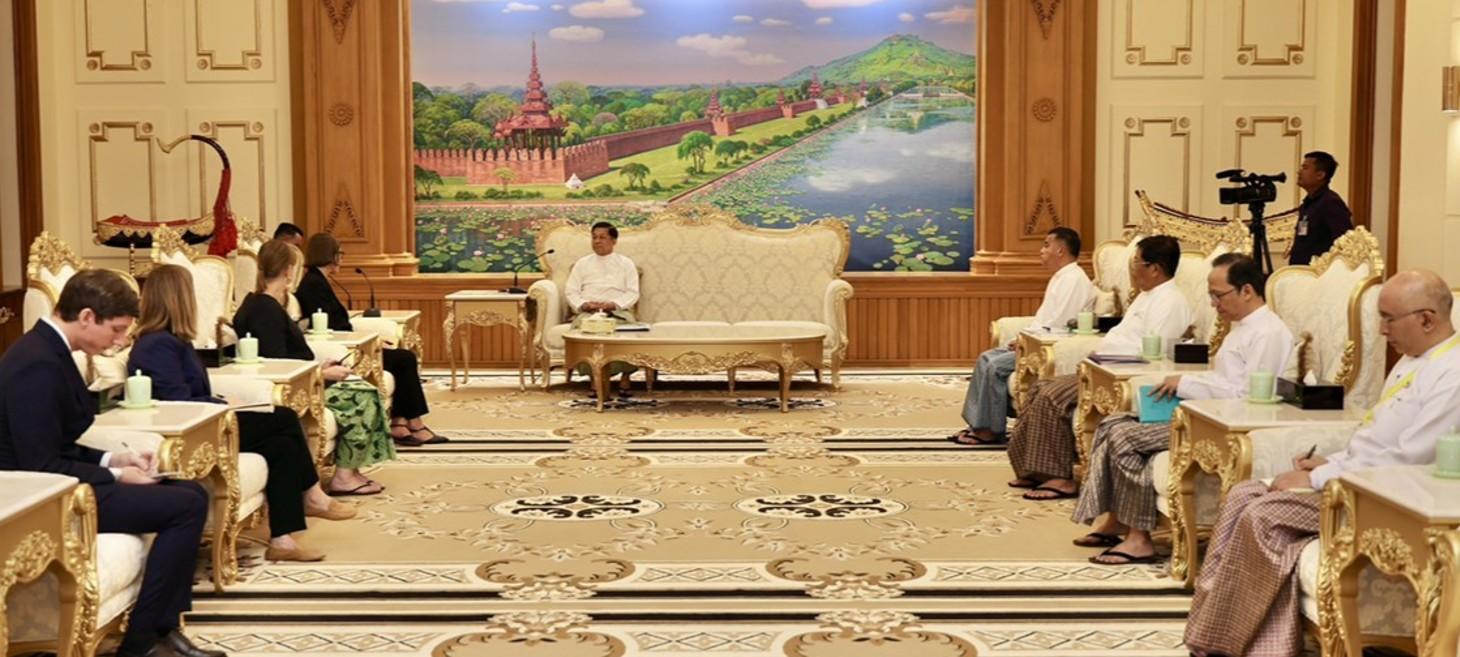
Red Cross head presses Myanmar junta for more aid access
ICRC President Mirjana Spoljaric recently met with Myanmar's junta chief, Min Aung Hlaing, to advocate for greater humanitarian access to conflict-affected areas. During her visit, she observed dire humanitarian conditions in Rakhine State, where clashes between the military and the Arakan Army have intensified. The ICRC has been pushing for the resumption of humanitarian activities, including prison visits, which were halted due to the pandemic. The situation in Myanmar remains alarming, with over 2.7 million people displaced since the 2021 coup. Despite ongoing discussions, the junta's restrictions continue to hamper aid efforts, and the ICRC is urging for improved cooperation to address the increasing humanitarian needs.
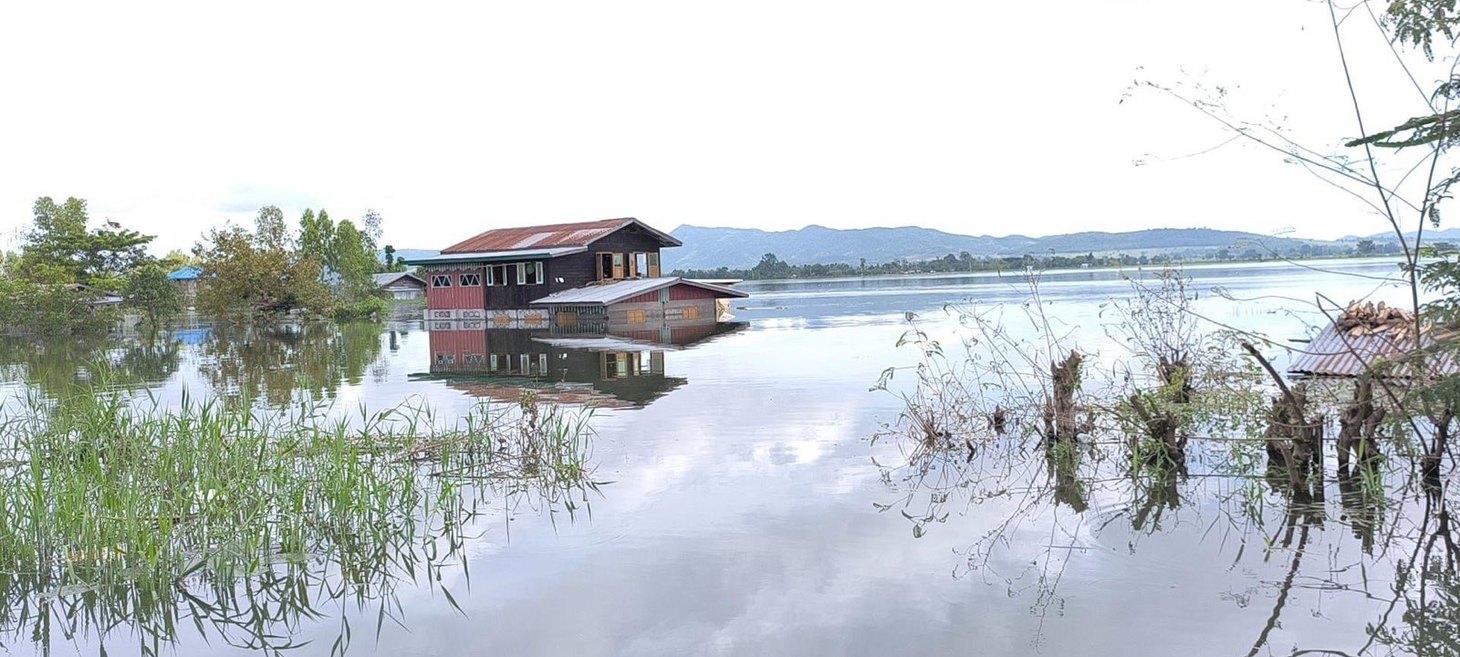
Ethnic Karenni areas of eastern Myanmar hit hard by flooding
Heavy rains from Typhoon Yagi have caused severe flooding in the ethnic Karenni areas of eastern Myanmar, particularly affecting regions along the border between Karenni and Shan states. Over 1,000 people, many already displaced by ongoing conflict, have been evacuated as rivers and dams overflowed. Moebye is the hardest-hit area due to its proximity to the Baluchaung River and Moebye Dam. The floods have inundated nearly a dozen villages and thousands of acres of farmland, damaging shelters and homes in Demoso and Shadaw townships. Local aid groups are urgently seeking donations for food, water, and basic necessities, while rescue efforts are hampered by inadequate equipment. The Karenni Interim Executive Council reports that over 28,700 people have been affected, with at least 12 displacement camps submerged, and at least 18 resistance members and three civilians have died due to the flash floods.
Military
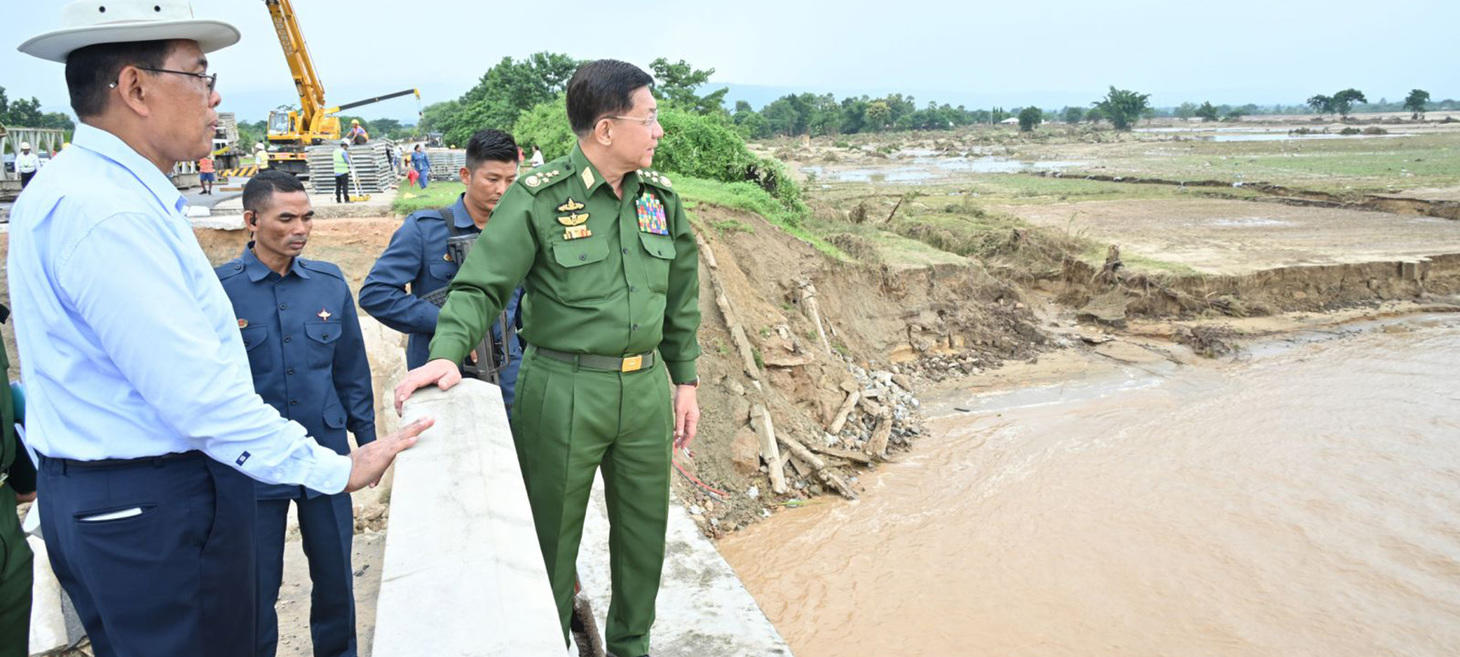
Myanmar Junta Boss Pleads for Flood Relief After Looting Disaster Fund
Myanmar's junta leader, Min Aung Hlaing, has appealed for international flood relief after allegedly misappropriating disaster funds. The plea comes as the country faces severe flooding, exacerbating the humanitarian crisis since the 2021 coup. The junta's request for aid follows accusations of looting funds meant for disaster response, raising concerns about the regime's management and transparency. This situation highlights the junta's struggles to address natural disasters while maintaining control over the country amidst ongoing conflict and economic challenges. The international community's response to this plea remains uncertain, given the junta's controversial track record.
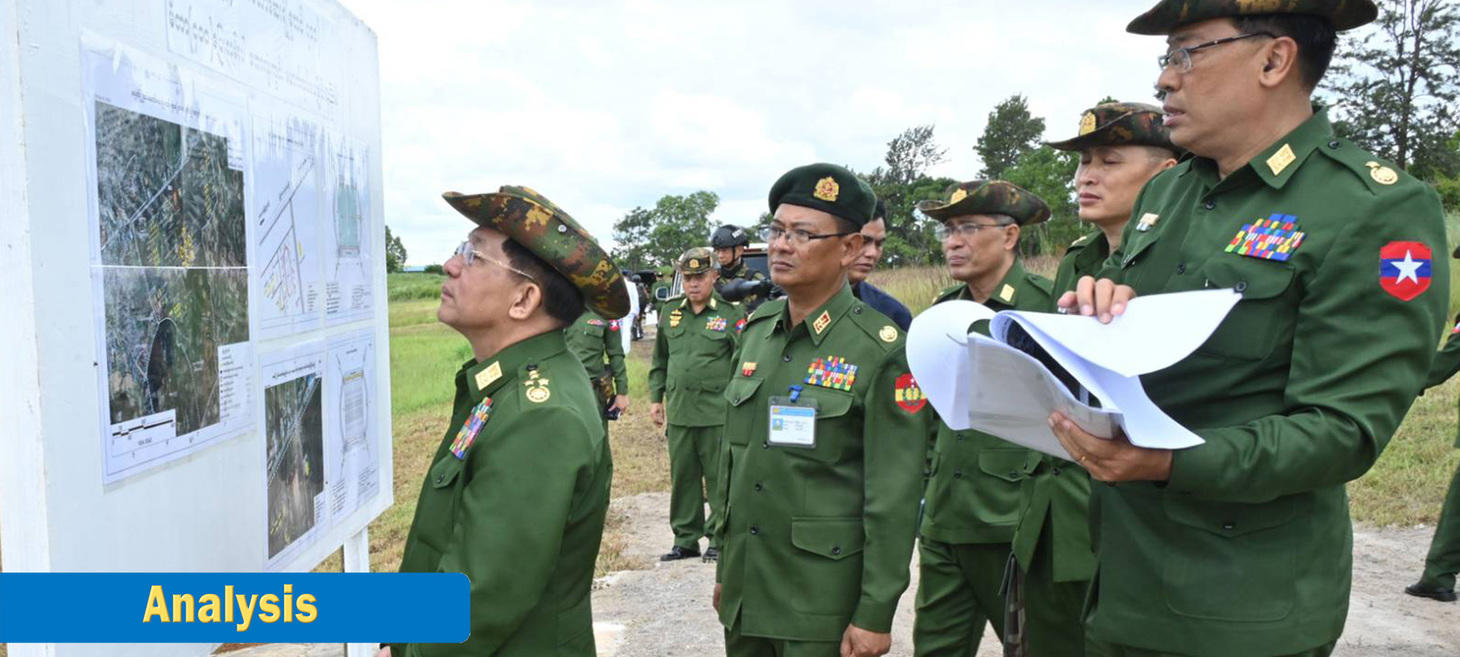
The Reasons Myanmar’s Junta Boss Ventured out of His Naypyitaw Refuge
Min Aung Hlaing, Myanmar's junta leader, recently ventured out of his stronghold in Naypyitaw, marking a rare public appearance amid increasing threats to his regime. His visit to the Defense Services Academy during the Thingyan festival was notable, as he narrowly escaped a rocket attack by resistance forces. This move is seen as an attempt to project confidence and control, despite the junta's struggles with internal dissent and external pressures. The junta's military has faced significant challenges, including territorial losses to ethnic armed groups and growing resistance from the People's Defense Forces. Min Aung Hlaing's public appearances aim to bolster the morale of his supporters and demonstrate his resilience in the face of mounting opposition. However, his regime continues to face international condemnation and sanctions for its human rights abuses and failure to restore democratic governance.